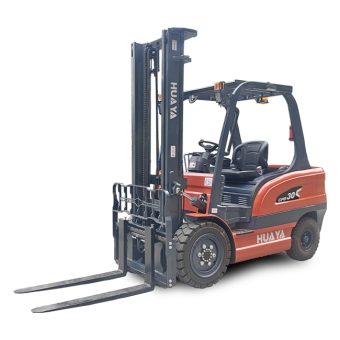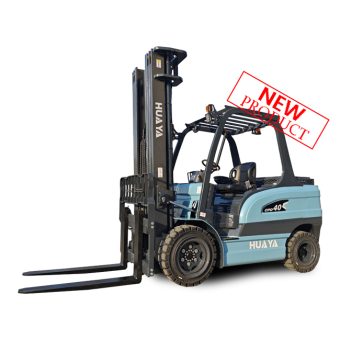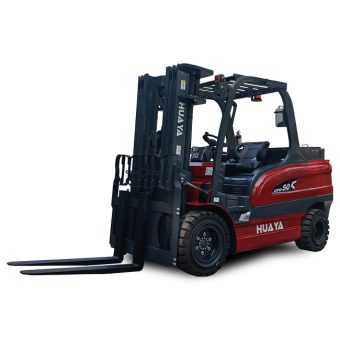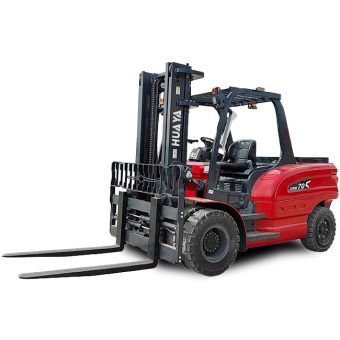
Actualités

Chariots élévateurs électriques sont des équipements essentiels pour de nombreuses industries, y compris la fabrication, l'entreposage et la logistique. Mais lorsque le temps pluvieux s'installe, des questions sur leur sécurité et leur fonctionnalité se posent souvent. Cet article explique si les chariots élévateurs électriques peuvent être utilisés sous la pluie, les considérations de sécurité et les meilleures pratiques pour les opérations par temps de pluie.
Les chariots élévateurs électriques sont alimentés par des batteries rechargeables, ce qui les rend écologiques et rentables. Contrairement à leurs homologues diesel ou à gaz, les chariots élévateurs électriques sont moins bruyants et n'émettent pas de gaz d'échappement nocifs. Ces caractéristiques les rendent idéaux pour les opérations à l'intérieur et à l'extérieur dans des conditions météorologiques spécifiques.
En bref, la réponse est la suivante : Oui, mais avec des précautions. Les chariots élévateurs électriques sont conçus pour supporter une exposition modérée à la pluie, mais ils ne sont pas entièrement étanches. Les faire fonctionner sous une pluie battante ou les laisser exposés pendant de longues périodes peut entraîner des dysfonctionnements électriques et des risques pour la sécurité.
La plupart des chariots élévateurs électriques modernes sont équipés de composants résistants aux intempéries pour supporter une pluie légère. Toutefois, une exposition prolongée peut endommager les pièces électriques sensibles.
Les surfaces mouillées peuvent réduire la traction, augmentant ainsi le risque de dérapage. Les conducteurs doivent faire preuve de prudence lorsqu'ils se déplacent dans des zones humides.
L'eau et l'électricité constituent une combinaison dangereuse. Veillez à ce que la batterie et le système électrique du chariot élévateur soient correctement étanches afin d'éviter les infiltrations d'eau.
Des inspections et un entretien fréquents permettent de s'assurer que les joints et les couvercles sont intacts et qu'ils empêchent l'humidité de pénétrer.
Les indices IP (Ingress Protection) indiquent la résistance d'un chariot élévateur à l'eau et à la poussière. Choisissez un chariot élévateur avec un indice IP élevé pour une meilleure protection. Consultez ce tableau de la Commission électrotechnique internationale (l'organisation responsable de la création des indices IP) pour obtenir une ventilation de tous les indices IP et de ce qu'ils signifient pour votre machine.
Les housses de protection peuvent protéger l'opérateur et les parties sensibles du chariot élévateur en cas de pluie.
Assurez-vous que les pneus sont adaptés aux surfaces mouillées. Les pneus pneumatiques offrent souvent une meilleure adhérence sur sol mouillé.
Réduisez votre vitesse et évitez les mouvements brusques pour prévenir les accidents sur les surfaces glissantes.
Stockez toujours les chariots élévateurs électriques dans un endroit sec afin d'éviter une exposition prolongée à l'humidité.
Les chariots élévateurs électriques peuvent être utilisés sous la pluie, mais seulement avec les bonnes précautions. Une pluie légère présente des risques minimes, mais une forte pluie peut entraîner des dommages importants et des problèmes de sécurité. En comprenant la conception et les limites d'un chariot élévateur et en suivant les règles et conseils d'utilisation des chariots élévateurs électriques, vous pouvez utiliser un chariot élévateur électrique en toute sécurité, même par temps de pluie.
Non, une forte pluie peut compromettre les composants électriques et présenter des risques pour la sécurité. Utilisez-les uniquement en cas de pluie légère et pour de courtes durées.
Utilisez des bâches de protection contre la pluie, procédez à un entretien régulier et rangez le chariot élévateur à fourche dans un endroit abrité lorsqu'il n'est pas utilisé.
Oui, certains modèles sont construits avec des indices de protection IP plus élevés et sont spécifiquement conçus pour les opérations en extérieur et en milieu humide.
Oui, si de l'eau pénètre dans le compartiment des piles, cela peut entraîner des dysfonctionnements ou des dommages permanents. Veillez à une bonne étanchéité et à un bon entretien.




